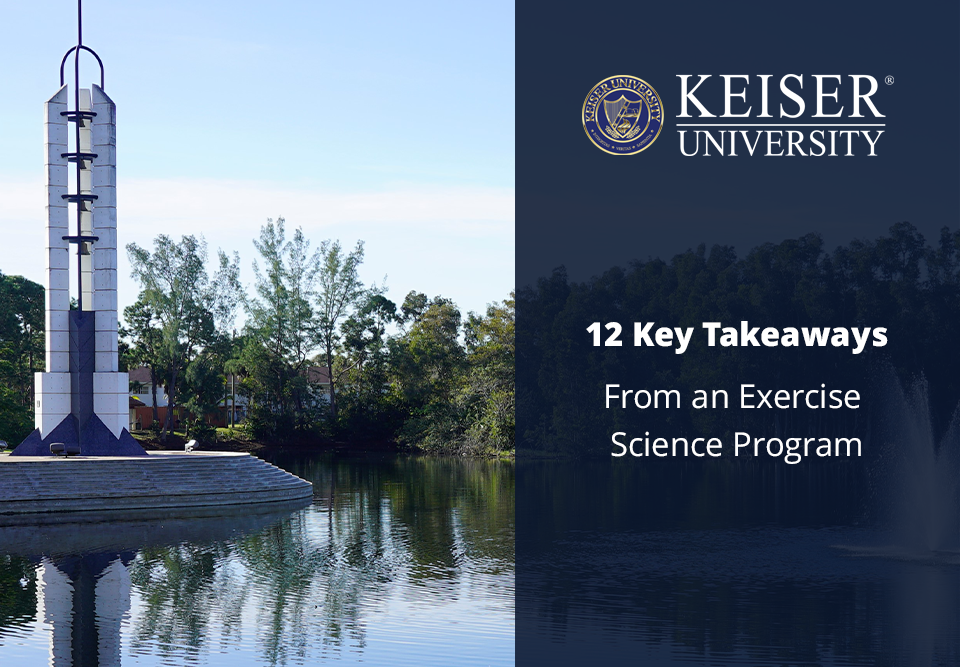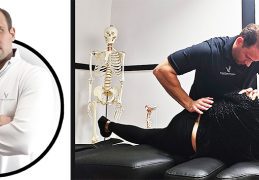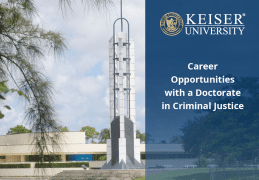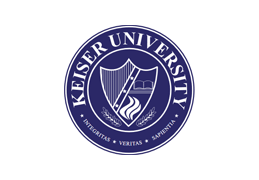Are you interested in sport science, exercise and how it all connects to health and wellness? Then a degree in exercise science may be right up your alley. In fact, if you already have a bachelor’s degree under your belt, you may already meet the qualifications to enroll in a master’s program in exercise science.
Through this type of program, you’ll learn how to be a leader in strength and conditioning programs, help others recover from illness or injury and possibly even pursue your own exciting business opportunities in the health and wellness field. In fact, many people with an advanced exercise science degree go on to work as fitness instructors, public health officers, lifestyle consultants and even exercise scientists.
Aside from basic career skills, there are a number of soft skills, personal takeaways and health insights you’ll gain from an exercise science program. These are takeaways that you can apply to all areas of your life, helping you get the most out of every day.
Samantha Gershowitz’s Journey in the Master’s in Exercise and Sport Science at Keiser University

Kaelan Jones on Elevating His Career with a Master’s in Exercise and Sport Science

Soft Skills and Working With Clients
So, what do you learn in health science, anyway? Some of the most valuable skills you’ll gain from this type of health education program are soft skills that will allow you to work and communicate with your future clients more easily.
1. You Work With a Range of Individuals
First, you’ll work with a very wide range of individuals from all kinds of different backgrounds and walks of life. In turn, you’ll need to learn how to adapt your own communication style and other areas of your work to various contexts and personalities. This is a skill that you will need to develop over time—but during your program, you will be able to see first-hand the many types of personalities that your future clients can bring to the table. Ultimately, your goal is to serve each of your clients’ unique needs to the best of your ability.
2. Life-Changing Services
Early in your health or exercise science program, you’ll also learn about the types of services you will be able to offer once you graduate and begin working in the field. Likewise, you’ll learn what a difference these services can make in the lives of your clients.
For example, you’ll learn about lifestyle and weight management techniques that you can then apply to helping a future client; these methods could help somebody struggling with their weight and health to turn their lives around and enjoy many more healthy years. Being able to offer these life-changing services as an exercise science professional is one of the most rewarding parts of the job.
3. Communication Differs Between Clients
Communication is just one of the many soft skills that you’ll need to fine-tune as part of your health science or exercise science program. In fact, strong and effective communication is one of the most important skills to have in this line of work. Because clients have different communication preferences, it will be your job to adapt your communication style to each of them. This will help you provide them the best possible service while ensuring that you always understand each other.
Sports Science Knowledge
In addition to some soft skills that you’ll acquire during an exercise science program, you can expect to develop some more technical knowledge in this type of program as well. This knowledge can be directly applied to your everyday work to help your clients optimize their results and lead healthier lifestyles.
4. Learn to Love Biology
If you don’t already love biology (the study of living organisms), this is something you will learn to love during your exercise science or health science program. That’s because biology is at the heart of just about everything you will learn during your advanced degree program. Through the study of biology, you’ll gain a better understanding of the human body, its competencies and the effects of nutrition and exercise on the body. This is all information and knowledge that will translate well in your future work.
5. Importance of Exercise and Health Research
Your time spent in an exercise science or health science program will also demonstrate the importance of ongoing research in this dynamic field. Each day, researchers are learning more and more about the human body and how it responds to medicine, exercise and nutrients. Without these findings, the field of exercise science wouldn’t be where it is today.
During your program of study, you’ll also perform your own research. Who knows? It just may end up being published and making a difference in the field.
6. Exercise Science Technological Advances
In addition to ongoing research and new findings, the exercise science field has also seen some incredible advancements when it comes to technological advancements over the years. In just the last several years, for example, the field has seen the introduction and widespread use of devices such as pedometers, wearable heart rate monitors, accelerometers and the like. As a result, it’s now easier for researchers, professionals and individuals to track their health metrics and optimize results.
7. Everyone’s Perception of Health Is Different
Another important thing that you’ll learn during an exercise or health science program is that everyone has a different perception of what it means to be healthy. For some, health may be more strongly tied to avoiding disease. Others may measure their health by exercise milestones (like being able to lift a certain amount of weight) or by the quality of their diet. As an exercise science professional, you will need to be conscious of the many ways in which people can perceive health and find ways to best serve each client.
Personal Advice
During a health science program or exercise science program, there is also some basic personal advice that you can expect to take away from your learning experience.
8. Each Day Is an Opportunity to Learn
While you’re studying health science, it’s important to see each new day as an exciting opportunity to learn. There’s so much to discover and understand in an exercise or health science program that you need to be open-minded to absorbing and studying new concepts every day. Otherwise, you may miss essential concepts and ideas that may apply to your future work in this field.
9. Always Look to Improve
As a future health science professional, it’s also important that you constantly look for ways to improve. This is a big theme within the health science field—the idea that there is always room for improvement. You should bring this same mentality and energy to your coursework, research and studies if you want to get the most out of your program and be prepared to work in the field. This is not exactly a line of work where you can find success settling for “good enough.”
10. Everyone’s Health Experience is Unique
Throughout your health science career, you’ll need to continually remind yourself that everyone has a different health experience and background to bring to the table. Each of your clients will have their own story that leads them to you—whether they are looking to lose weight, learn more about nutrition or even manage an underlying condition. Being able to see everyone’s health experience as completely unique and one-of-a-kind will help you better serve your clients while meeting them where they’re at.
Health Knowledge and Advice
Aside from some soft skills, personal advice and health science fun facts, there are quite a few health facts and tidbits that you will be able to take away from a quality exercise science or health science program.
11. Any Food Is Good Depending on How You Treat It
First and foremost, you will learn that there is really no such thing as “bad” food or a “bad” diet, as this is all relative. In fact, every food is a good food with nutrients to offer. At the end of the day, the quality of any food should be based on its context and how you treat it.
You’ll see this concept applied a lot in a weight management program, where many clients will come in with the assumption that sweets and desserts are flat-out “bad” for them and thus should be restricted, if not outright eliminated. Your job here as a health science professional is to get your clients to understand that all food has nutritional value and that our ideas of “good” versus “bad” foods are a complete social construct.
12. Be Humble About Your Health
Finally, an exercise science or health science program will help you see that health and wellness are fragile things—and that we should always be grateful for what we have. During your career in health science, you’ll likely run into clients who have gone from being fit and healthy to being in dire health due to a sudden injury or illness. Your good health really can be taken away from you at any time (and with no warning), so it’s important to stay humble. Doing so will help you do your job better while allowing you to serve your clients with the compassion and respect they deserve.
Explore Relevant Programs From Keiser University
As you can see, there’s a lot you can expect to get out of a master’s degree program in exercise science—aside from interesting facts about health science, of course. The takeaways you gain from this type of program can help you lead a happier and healthier life while empowering you to better serve your clients and help them achieve healthier lifestyles. That’s a win-win for everyone involved.
Feeling overwhelmed by the number of exercise programs available to you? Keiser University is proud to offer an online Master of Science in Exercise and Sport Science. This 36-credit-hour program can be completed in as little as 12 months with career opportunities in collegiate performance training programs, rehabilitation clinics, fitness-oriented businesses and more. This program also serves as an excellent stepping stone to our more advanced Doctor of Health Science program.
Request more information about our exercise and sport science program or explore the other graduate school programs at Keiser University today. You can also reach out to speak with a graduate admissions counselor directly.






 The instructors at Keiser University impacted my life. They believed in my ability to become a great graphic designer, regardless of how I felt about my skills. KU helped to prepare me for the real world and got me to where I am today.
The instructors at Keiser University impacted my life. They believed in my ability to become a great graphic designer, regardless of how I felt about my skills. KU helped to prepare me for the real world and got me to where I am today.
